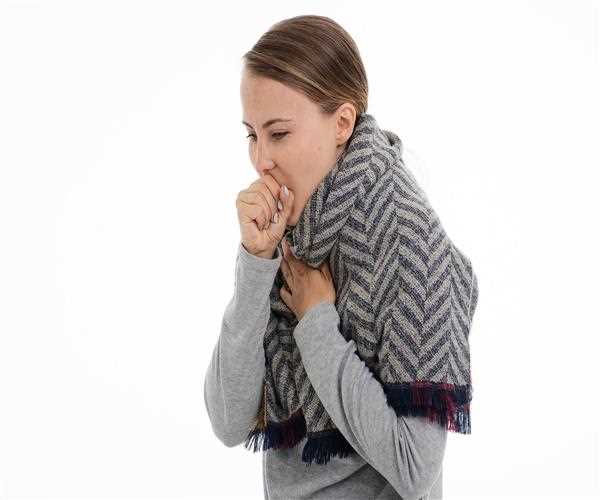
06-Apr-2022
What to Know about Wheezing?
What is Wheezing?
When your airway is partially closed, your breath produces a harsh, hoarse whistling or cracking sound.
Some breaths can only be heard using a stethoscope, although they are often audible to the human ear. Snoring is most noticeable when you breathe in, although it can also be heard when you inhale (inhale). Respiratory tone may vary, depending on whether a portion of the airway is obstructed or restricted. The contraction of the upper respiratory system causes hoarse snoring. Like the sound of a wind instrument like a clarinet, the lower frets may have a more harmonious tone.
Snoring can affect anyone from children to the elderly. Asthma is very common in children. Snoring is also very common in infants; It is estimated that 25% to 30% of infants will have shortness of breath in the first year of life.
Because newborns have smaller airways, snoring is more likely to occur. In addition, children under the age of two are at increased risk for bronchiolitis, a disease that is often but not treatable. It is triggered by inflammation and viral respiratory infections. Adult smokers as well as those with emphysema or heart disease are more likely to have shortness of breath.
What causes snoring?
The most common cause of snoring is a blockage (obstruction) or constriction of the small airways in the chest. ****** Can also cause airway or voice card obstruction. Chronic (chronic) diseases such as asthma that are commonly managed are caused by the most devastating disorders such as heart failure. Problems with your lungs are one of the most common causes of snoring.
Lungs:
Asthma is a chronic disease that causes spasms and edema in the bronchial tubes. Exposure to airborne allergens such as pollen, mold, animals, or household dust can cause asthma and snoring. Viral infections can also exacerbate asthma symptoms.
Bronchitis is an inflammation of the lining of the bronchial tubes.
Bronchiolitis most often occurs in children under five years of age.
COPD is a chronic obstructive pulmonary disease, usually caused by cigarette smoking and damage to the bronchial tube lining.
Cystic fibrosis is a disease that affects the lungs (CF). Thick mucus in people with CF clogs the airways, making breathing difficult.
Pneumonia is a viral or bacterial infection that causes inflammation of the lungs.
Respiratory syncytial virus (RSV) is a seasonal lung infection that causes pneumonia or bronchiolitis.
Aspirate a foreign object into the lungs.
Voice Strings:
Vocal cord dysfunction When you inhale and exhale, your vocal cords close instead of opening, making it harder for air to enter or exit your lungs.
Esophagus or gastrointestinal tract:
Gerd. Acid reflux causes snoring in breathing by relaxing the lower esophageal valve.
Allergies:
Allergens such as dust mites, pollen, pets, mold spores, and foods can trigger allergies.
Anaphylaxis is a malignant allergic reaction caused by the bite of certain foods or insects.
Heart problems:
Heart failure is a serious condition. Cardiac asthma is a condition caused by fluid-induced left heart failure in the lungs.
Lifestyle Choices:
Smoking increases your risk of developing COPD or emphysema. Smoking and second-hand smoke make asthma more difficult to control.
In these situations, the best way to control snoring is to treat the underlying cause.
If you have shortness of breath, consult your doctor as soon as possible. Seek immediate medical attention if you experience shortness of breath, severe shortness of breath, or bruising on your skin.
What should I do to get rid of snoring at home?
You can improve your breathing in several ways:
- If you have asthma, breathing exercises are performed to relax your airways. Yoga breathing should be done in a humid, humid environment. If you are not in the habit of breathing pranayama, slow, deep breathing exercises can help increase the capacity of your lungs and relax your airways.
- Make a cup of hot herbal tea. The warmth and moisture of the tea help to relax your airways. Green tea has been shown to have antimicrobial effects in many trials.
- Please do not smoke. Smoking irritates and inflames your lungs and airways. Second-hand smoking should also be avoided.
- Use an air purifier with a HEPA filter to eliminate potential allergens in your home.
- Using the evaporator, you can evaporate your air.

Student
An inquisitive individual with a great interest in the subjectivity of human experiences, behavior, and the complexity of the human mind. Enthusiased to learn, volunteer, and participate. Always driven by the motive to make a difference in the sphere of mental health - and normalize seeking help through a sensitive and empathetic approach
Join Our Newsletter
Subscribe to our newsletter to receive emails about new views posts, releases and updates.
Copyright 2010 - 2026 MindStick Software Pvt. Ltd. All Rights Reserved Privacy Policy | Terms & Conditions | Cookie Policy